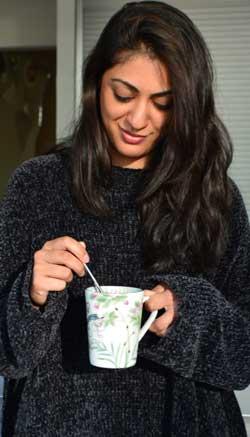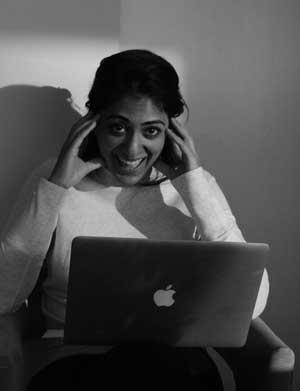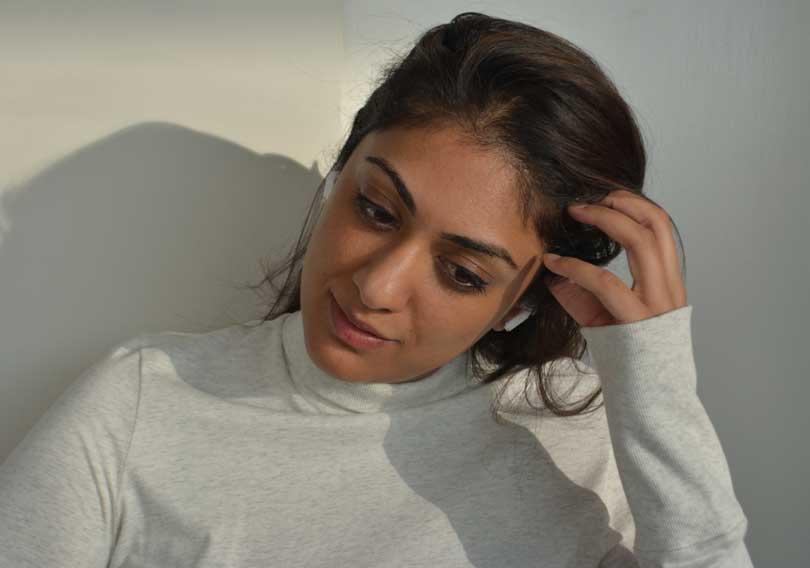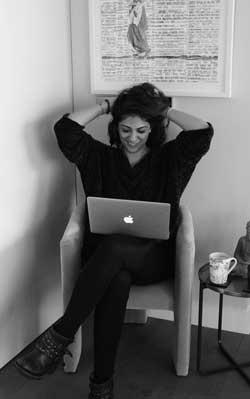Reply To:
Name - Reply Comment
 By: Rishini Weeraratne
By: Rishini Weeraratne
In today’s evolving landscape, a growing number of single women in their 30s and 40s are rewriting the script on family planning. Faced with the ticking of their biological clocks, they’re taking charge of their own destinies. These independent, empowered women are choosing to explore egg freezing, freezing of embryos and even the idea of single parenting, breaking away from societal norms that insist on marriage as a prerequisite for motherhood. With a firm belief that they don’t need to conform to traditional timelines, these women are embracing the idea of raising children on their terms, prioritizing their own happiness and dreams. Their journeys are a testament to the changing dynamics of modern family planning, driven by resilience, determination, and a steadfast refusal to bow to external pressures.
I had the pleasure of meeting Shaila Paul for the first time at a mutual friend’s gathering during the summer of 2022. It didn’t take long for our conversation to veer towards the fascinating world of dating apps, whilst sipping on a glass of wine. Shaila struck me as a fiercely independent and creatively inclined young woman, a trailblazer who has charted her own course in life. As a British citizen of South Asian heritage, she hails from a prominent and affluent British Indian family, and today, she confidently leads her own fashion-retail e-commerce business; Shai.La. Born and raised amidst the vibrant tapestry of London, Shaila’s journey is a testament to her modern perspective on life, even as she holds dear the strong bonds nurtured in her close-knit, modern-joint family upbringing. Having pursued her undergraduate education in the very heart of the city, Shaila’s life is further enriched by her close relationship with cousins, infusing her story with a unique blend of tradition and entrepreneurial spirit. Adding to the richness of her narrative is her lineage; she is the granddaughter of Lord Swraj Paul, an esteemed Indian-born British business magnate and philanthropist, who holds a seat in the House of Lords, UK.
Approaching my late thirties, I found myself increasingly intrigued by the concept of egg freezing, a topic I had typically shied away from discussing when queried by friends back in Colombo. It was during a relaxed summer evening, nearly a year after our friendship began, as we sat on a Soho House terrace in London, sipping on glasses of wine, that Shaila and I embarked on an in-depth discussion about the intricacies of egg freezing. Somewhere in the midst of our dinner and dessert conversation, I managed to persuade Shaila to generously share her entire egg freezing journey, a valuable experience I believed our readers in Colombo would greatly benefit from.
 What led you to consider freezing your eggs at this point in your life?
What led you to consider freezing your eggs at this point in your life?
My decision to freeze my eggs is rooted in a culmination of experiences. I spent most of my twenties assuming that Mr. Right would eventually come into my life, so I devoted that time to having fun and enjoying life. While I wouldn't change those experiences for anything, I now wish I had advised my younger self to pay more attention to what truly matters. The thought first crossed my mind at the beginning of the Covid-19 lockdown. It became apparent that we might miss out on opportunities to meet someone during the lockdown, so I began to consider the idea. Some friends of mine embarked on the egg freezing process, and although I engaged in intense conversations about it, I ultimately decided it wasn't the right choice for me. After conducting thorough research on what the process entails, including hormone injections before the procedure, I realized that I wasn't mentally prepared for it at that time. I held onto the belief that I would meet someone soon enough, and fertility wouldn't be a concern. However, as the years passed, the idea lingered in the back of my mind, and I toyed with the idea of getting a Fertility MOT (fertility test), but I never actually followed through with it.
Could you share some of the factors that influenced your decision to explore egg freezing?
In April 2023, I had the privilege of connecting with a close friend, a British Indian woman who is forty-two years old, highly successful in her professional life, and serves on the Boards of several companies. She’s an independent woman who has been through marriage and divorce. She’s chosen to undergo artificial insemination in October 2023. Her invaluable advice to me was to consider a ‘MOT’ or fertility test, which I promptly did.
This advice was born from her personal experience, reflecting her desire to have undergone the Fertility MOT a few years prior to pre-empt certain challenges she encountered at this juncture. I opted for the London Women's Clinic, the same clinic my friend had chosen. For my initial appointment, I went alone. I was driven by curiosity and a thirst for knowledge about my options. I wasn't afraid of the results because I firmly believe that what's meant to be will find its way. This journey has been about empowerment and taking control of my own destiny.
Have societal or personal factors played a role in your choice to freeze your eggs? Could you elaborate on these?
Being a British Indian woman, my journey to considering egg freezing has been a deeply personal one. For seven years, I lived and worked in New Delhi, India, actively involved in the family business. During this time, I also grappled with the expectations and norms imposed upon me by my family and society. Over the past few years, I’ve worked on normalizing the idea that my life may not follow the traditional path of finding a knight in shining armour and having a fairy tale, ‘happily ever after.’ I've come to realize that this doesn't mark the end of the world; instead, it opens up the possibility of a different kind of joy and fulfilment; one that comes from raising a child. In any family, the expectations placed on children are often set from the moment they're born. Deviating from that preconceived plan can be challenging for parents to accept. I’ve found that giving them time to come to terms with this deviation is important. Had I discussed this decision with my mother at the age of 32 or 33, she might not have agreed. However, at the age of 36, she has become more open to the idea. It’s crucial to emphasize that freezing my eggs doesn’t mean I’m giving up on the idea of ever getting married. Instead, I see it as a way of keeping my options open and taking control of my own life. In fact, I believe that every woman should be given the option to explore this avenue as soon as they turn thirty. Our biological clocks shouldn’t be a hindrance to our future plans. With the unwavering support of my mother, I’m taking charge of my destiny and shaping a life that aligns with my own aspirations.


What kind of information and guidance did you receive before making the decision to freeze your eggs? How did it shape your understanding of the process?
My decision to explore egg freezing was informed by a wealth of information and guidance from a variety of sources. I’ve been fortunate to have conversations with so many friends who’ve undergone the process, from all over the world. These conversations were never forced and would generally just happen over a catch-up dinner. I realise now I am fortunate enough to have many friends who are so open with their experiences. Two of my closest friends, one of British Pakistani descent and the other British Indian, were particularly influential in my decision-making process. Their candid sharing of their own journeys made the entire experience feel accessible and relatable. Podcasts and in-depth research were essential components of my journey. They provided me with a comprehensive understanding of the procedure and its implications. It wasn’t until I typed in the words, ‘Egg Freezing,’ into Spotify that I realised just how much content is out there. Additionally, once I made my appointment with the London Women’s Clinic, I was thrilled to see the amount of information they offer. The clinic’s support was invaluable, offering modules for in-depth study and simplified, detailed videos that walked me through the process step by step. Ultimately, what made the decision feel most comfortable was the access to information. By openly discussing egg freezing with others, I gained a deep appreciation for the process and the multitude of ways it can empower individuals to take control of their family planning.
As you embark on this journey, what insights or advice would you offer to other women who might be contemplating the same decision?
First and foremost, I strongly recommend getting a Fertility MOT. While it might sound clichéd, knowledge truly is power. It’s about giving yourself options, not admitting defeat or resigning to the idea that you’ll never get married. Having a Fertility MOT empowers you to make informed decisions about your life and family planning on your terms, rather than letting external pressures dictate your journey. Initially when I started thinking about it, I felt like I was surrendering to the notion that I may not meet someone. The key is to disassociate the two; one is eggs, one is dating. Here's a brief overview:
Were there any specific experiences or milestones that led you to seriously consider egg freezing as an option?
For many individuals, age often serves as the predominant milestone influencing the decision I faced. However, I can't claim that age played the same defining role in my own journey. The catalyst that truly propelled me toward considering a Fertility MOT was my aforementioned British Indian friend, who, at the age of 42, illuminated the importance of this step. I didn't approach the test with the intention of immediately opting for egg freezing. Instead, I entered the process with the awareness that children hold a paramount place in my future, and I needed to take proactive measures to secure that future. I couldn't help but envision a scenario where, at some point in the future, I would decide I was ready to start a family, only to encounter unforeseen challenges. If I have the means to purchase insurance for my car, then why shouldn't I invest in an insurance policy for my future family planning?
What impact, if any, did conversations with friends, family, or medical professionals have on your decision-making process?
In my decision-making process, I can confidently say that I made up my mind independently, without direct influence from third parties. However, I greatly valued the information and insights shared by friends, family, and medical professionals as a form of guidance. One particular factor that significantly influenced my decision was the scientific aspect of the process, particularly my AMH (Anti-Mullerian Hormone) level. Learning about the science behind egg freezing and how it could secure my future reproductive choices made an immediate impact on my decision. I would like to stress the importance of the Fertility MOT test, which I found to be an essential first step. This test alone can provide a clear outline of all available options. I strongly recommend that all women over the age of thirty consider this test, even if family planning is a potential goal in the future. It's a valuable source of information that can help you make informed decisions about your reproductive health.
Could you discuss any concerns or reservations you had before committing to egg freezing? How did you address these concerns?
I approached the decision to freeze my eggs with a certain level of anticipation, and there were some concerns and reservations I acknowledged along the way. One aspect that never frightened me was the prospect of pain. I actually look forward to the entire procedure, from the process of freezing my eggs to eventually achieving pregnancy. What did give me a slight pause was the potential for weight gain and mood swings due to the hormones I'd be injecting into my body. While I hope not to experience any complications, I conducted extensive research and educated myself about the potential side effects, which alleviated most of my concerns.
How do you envision the role of egg freezing in your overall family planning strategy?
I’ve always seen egg freezing as a form of insurance in my family planning strategy. It's about keeping my options open and empowering myself to shape the future I desire. I acknowledge that life is full of uncertainties. I might meet someone in a few months, and the need to use these frozen eggs may never arise. However, the beauty of egg freezing is that it allows me to maintain flexibility and control over my reproductive choices. It's a proactive step that ensures I have the option to pursue the family I envision in the future, regardless of the path life takes me on.
How did you inform your mother about your decision?
The conversation with my mother about my decision to explore egg freezing unfolded quite organically. It all began during a car ride with her one day when we were discussing my friend, a British Pakistani, who had undergone the egg freezing procedure multiple times due to her challenges with producing healthy eggs. As we talked about my friend's experiences, my mother, perhaps sensing an opening, asked if I had considered freezing my eggs as well. I shared with her that my intentions extended beyond just freezing eggs, I was also keen on the idea of having a child on my own at some point in the not-so-distant future, if I don’t meet Mr. Right. To my surprise and delight, my mother was not only fully supportive of the idea but also enthusiastic about it.
She reminded me that while men may come and go, the bond with one’s children is enduring. Her support and excitement about the prospect of me becoming a parent were truly heart-warming. It was a reassuring moment that solidified my decision and reminded me of the importance of open and honest conversations within families. Having the unwavering support of my family was an invaluable starting point, providing me with the reassurance that, regardless of the path I chose to follow, I had a solid foundation of encouragement and backing.
 What happens after you freeze your eggs?
What happens after you freeze your eggs?
The fertility MOT showed that I have good-sized follicles, and my blood work indicated that my AMH levels, on a scale of one to fifteen, are on the lower end. According to the doctor, this means I am in good shape to have a baby within the next year, and there might not be an immediate need to freeze my eggs. However, if meeting Mr. Right isn't in the cards within the next year, it's advisable to make a decision sooner rather than later. The results of the MOT presented me with three viable options:
Embarking on the journey of egg freezing currently aligns perfectly with my intentions. The procedure is slated to occur approximately two months after completing the Fertility MOT, and I'm eager to commence once my cycle begins. It's worth noting that the success rate of achieving pregnancy with a viable embryo is higher than with a solitary egg. This leads me to contemplate the notion of single parenthood while simultaneously remaining open to dating and the possibility of meeting a life partner. I intend to continue using dating apps as part of my search for a compatible partner. Simultaneously, I envision a unique gathering where my friends and I come together, enjoying a night of wine and collectively exploring the myriad options offered by sperm banks from around the world. This approach reflects my proactive and open-minded approach to family planning.
Part II: To Be Continued.
Listen to Shaila’s Podcast where she discusses the topic at length on her show Chai with Shai available on all platforms (Spotify, Apple Podcasts and Google Podcasts) and follow @chai_with_shai on Instagram.